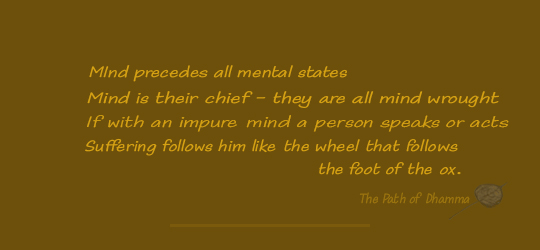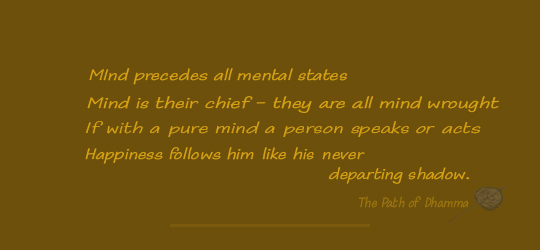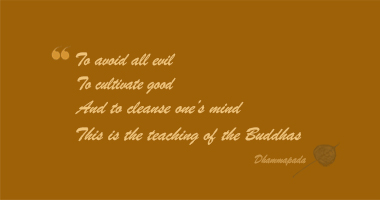
“Mind precedes all mental states. Mind is the their chief, they are all mind-wrought”. When the mind gives rise to a thought, that thought will lead, will master, and will trigger the next things, and the next things here are words and actions. The mind, words, and actions will create wholesome karma or unwholesome karma, which will bring happiness, peace, or suffering and sadness in human life.
Therefore, the Buddha taught that if with an impure mind, when speaking or doing something, suffering will follow like the wheel always rolls after the foot of the ox pulling the cart, inseparable. The wicked mind is an ignorant, without right view, not seeing the Four Noble Truths, the mind is stirred by greed, hatred, and delusion, so when speaking, there will be no right speech, one may speak vulgarly, cannot control one’s speech, speaking evil causes bad karma, causing suffering to many people, causing anxiety for the family and society. And the same goes for actions if with a base mind, the action is not in accordance with right action. The action will harm people and living beings, and cause injure to the family and the community. And the inevitable thing that will happen is that suffering will follow without any way to prevent it.

And then the Buddha also taught that if with a pure mind, one realize the Four Noble Truths, controls greed, anger and envy, then one always speaks kindly and gently in communication with everyone, acts in awareness without causing harm to the social environment. Then peace and happiness will come to the life and as one’s shadow that never leave.
The mind as the Buddha taught is extremely important, deciding the life of a person in the present and the future. To have a pure mind, each of us must strive to accumulate blessing and do good deeds, gradually transform our consciousness through cultivation methods, diligently study the Buddhist teachings, practice meditation as a spiritual food in daily life. Realize the nature of non-self, nothing is separate, nothing is independent, nothing is permanent and eternal.
Thich Hue Chon
(Translated by Phap Luu Home)


